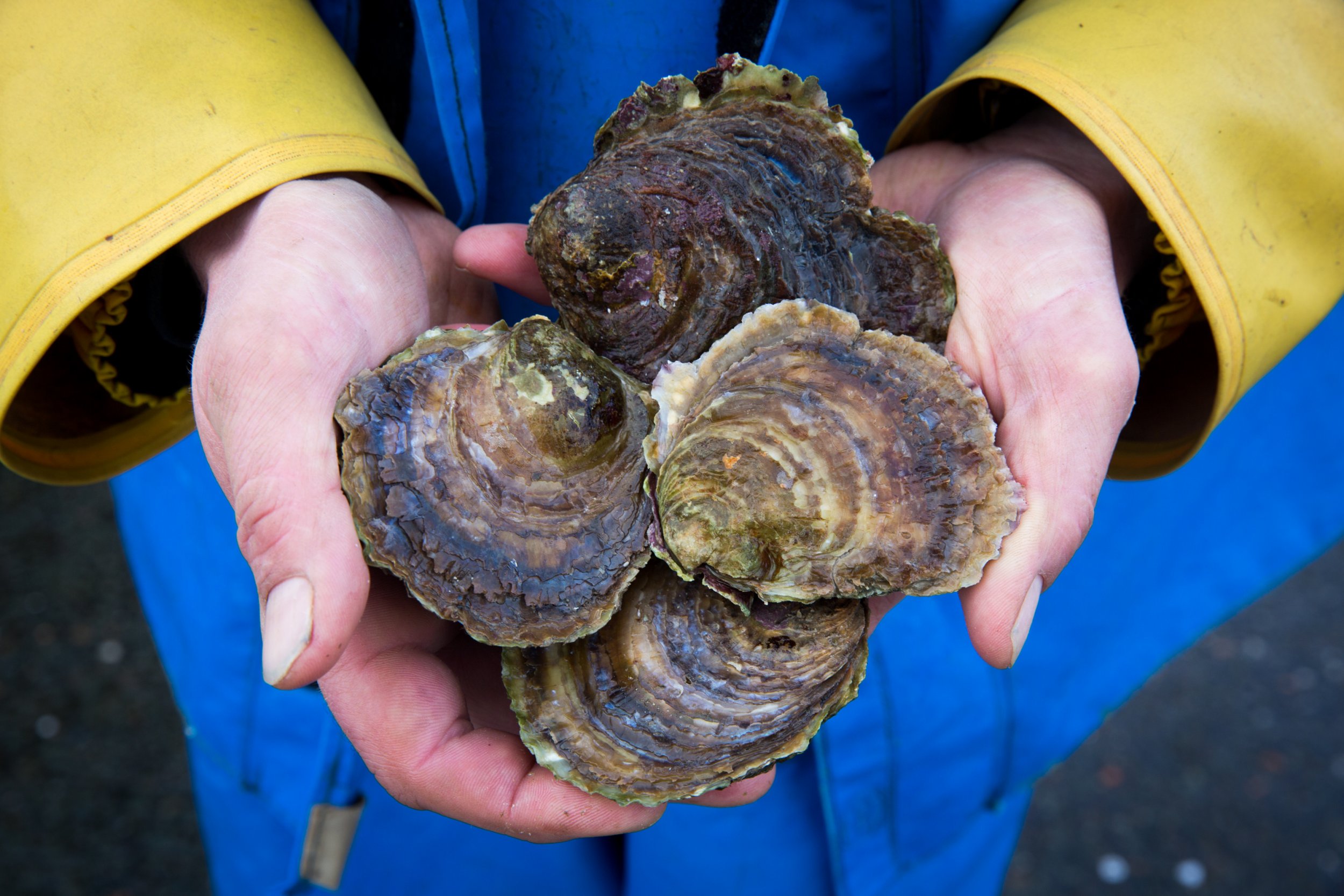
The newts play the flute, the carp play the harp, but the oysters aren't having any of this nonsense and want all of the Little Mermaid's musically inclined friends to give them some peace and quiet already.
Or at least they'd sure as heck like humans to just give them some peace and quiet already. That's according to a new study published today in the journal PLOS ONE, which looked at how oysters respond when blasted with sound.
"These animals are very easily stressed, and when you are stressed your ventilation [breathing] is modified as well as your heart activity (heartbeat), etc.," lead author Jean-Charles Massabuau, a marine biologist at the French National Centre for Scientific Research, wrote to Newsweek in an email.
Massabuau had been working on a separate project and visiting a commercial port, when a diver happened to mention he had never dived in a spot so noisy. So Massabuau wondered if the oysters could hear all that ruckus. He and his colleagues decided to find out by exposing oysters to noise in a lab.
They measured how upset the oysters were when blasted with sound by tracking how long the critters spent with their shells shut, the molluscan equivalent of putting in earplugs. But unlike earplugs, shutting out the world around them for oysters means passing up crucial resources. "When they are closed, they can't eat and they can't breathe," Massabuau wrote. While oysters shut themselves up naturally as well, adding more shut-shell time does affect their bodies, Massabuau found.
According to the new paper, oysters are particularly sensitive to noises pitched between 10 Hz and 200 Hz, relatively lower sounds.
The study adds to a few other early experiments suggesting mollusks can sense noises, which can affect their health. That means we should expand our concerns about the impact of noise pollution beyond today's focus on only dolphins and whales, Massabuau added. A huge range of human activities make the ocean noisy, including ships passing by to underwater construction and mining, and military sonar instruments.
"The results of this paper fit within an increasing body of scientific literature which is indicating that anthropogenically produced water-borne sound, and associated vibration within the sediment, is impacting invertebrates at a behavioral level," Louise Roberts, a marine biologist at Dartmouth College who has also researched the effect of noise on ocean animals, wrote in an email to media outlets including Newsweek.
If your mind went directly from oysters to dinner, you aren't alone. Roberts points out that oysters are a commercially valuable species, so they may draw more attention than other, less tasty shellfish, which could still play important ecological roles.
Maybe one day continuing research will suggest the fluke isn't the duke of soul after all.
Uncommon Knowledge
Newsweek is committed to challenging conventional wisdom and finding connections in the search for common ground.
Newsweek is committed to challenging conventional wisdom and finding connections in the search for common ground.
About the writer
Meghan Bartels is a science journalist based in New York City who covers the science happening on the surface of ... Read more
To read how Newsweek uses AI as a newsroom tool, Click here.








